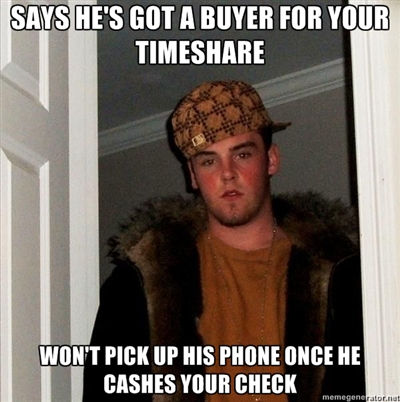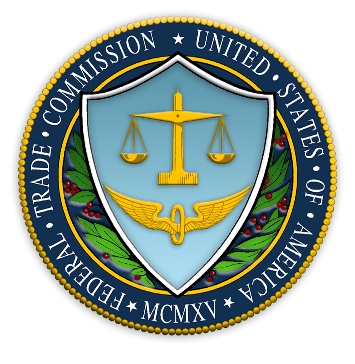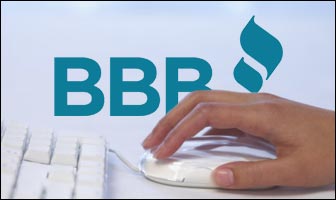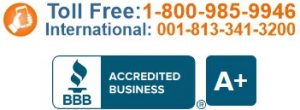Judgment Awards $6.3 Million in Alleged Timeshare Resale Scam
 The attorneys at Ballard Spahr have just released word that The Federal Trade Commission and the U.S. District Court for the Middle District of Florida have entered a final judgment and settlement against a number of fraudulent timeshare resale companies who employed illegal telemarketing techniques to bilk individuals out of thousands of dollars.
The attorneys at Ballard Spahr have just released word that The Federal Trade Commission and the U.S. District Court for the Middle District of Florida have entered a final judgment and settlement against a number of fraudulent timeshare resale companies who employed illegal telemarketing techniques to bilk individuals out of thousands of dollars.
The defendant contacted sellers via phone with a classic line: they already had buyers lined up and would just need an upfront fee to cover, in this case “earnest money deposits.”
This particular scam charged owners up to $3,150 in advance fees; while assuring clients their sales would be reviewed and approved by the FTC. Needless to say, the timeshares were never sold and the scammers routinely denied demands for refunds. The fraudulent timeshare resellers used PO Boxes to receive their funds (another red flag) and operated under a number of names including:
- National Solutions LLC
- Country Wide Timeshares
- Landmark Timeshares
- Quicksale Propertys
- VIM Timeshares
The defendants were charged with violating the FTC Act and the FTC’s Telemarketing Sales Rule. The judgment permanently bans all defendants from ever working in timeshare again, and imposes a fine of more than $6 million dollars. The huge settlement speaks to the FTC’s renewed dedication to the punishment of fraudulent timeshare resale operations.
While the FTC and regional district courts continue to fight timeshare resale scammers, it’s ever more important for consumers to remain diligent in protecting themselves while selling their timeshare. Timeshare sellers should always work with a licensed real estate broker who specializes in timeshares and doesn’t charge an upfront fee.
And don’t just take their word for it. Scammers will tell you anything to get your money. It’s up to you to do the research. Do they have current real estate licensing? Are they BBB accredited? Do they belong to any broker’s groups? Do they have a real street address?
If you an answer “yes” all those questions, you’re on the right track to finding a broker who can safely sell your timeshare. And remember, the most important lesson we can learn from stories like this is, never, ever pay in advance to sell your timeshare.
SOURCES:
http://www.jdsupra.com/legalnews/63-million-judgment-awarded-in-alleged-41576/
How to Check a Broker’s Licensing

 We’re always advising timeshare sellers to check the licensing of a potential timeshare broker before they do business with them.
We’re always advising timeshare sellers to check the licensing of a potential timeshare broker before they do business with them.
Checking a broker’s licensing is one of the most reliable ways to ensure the reputability of a given real estate broker; but it’s come to our attention that not many people know how to check a broker’s licensing.
We’ve put together this instructive article to help consumers keep themselves safe while selling a timeshare. Read on for more information about how to verify a timeshare broker’s licensing. As vacation ownership scams continue to increase in number, it’s becoming clear that the resale of timeshares should be handled like any other real estate transaction – with the help of a licensed broker. To keep yourself safe when selling your timeshare, the first step you should take is to verify the credentials of any potential broker or real estate agent. Here’s how:
Check the Association of Real Estate License Law Officials
The first place to start your research is ARELLO® – the Association of Real Estate License Law Officials. One of the reasons consumers find it so difficult to verify licensing is that every state does things a bit differently.
ARELLO is a valuable tool because it helps encourage licensure and education recognition between jurisdictions. When you visit the ARELLO website you’ll have the option to verify licensing by either license number or the name and state in which the broker resides.
If your potential broker holds current licensing, ideally you’ll see recognition from both the National REALTORS® Database, and the state division of real estate. Bookmark both reports, and while there, take down their license number, in the “license information” section of the report.
Verify Credentials With the State
This is where things can get tricky; but if you’ve completed the first step and have a license number to search by, you shouldn’t have any problem. First, you’ll have to find the licensing authority for the particular state in which your potential broker resides.
The easiest way to do this is with a simple Google search for the [state] + “real estate licensing” authority. Because a majority of timeshare brokers live and operate in Florida, we’ll use the Sunshine State as our example.
So, to find the state licensing authority for Florida, your search might look something like this: “Florida real estate licensing”. Some states will have different terms for their real estate licensing authority like “Commission,” “Division,” or “Board.”
Because of its authority as a governmental resource on the web, the regulatory agency you’re looking for should usually show up first. From the state licensing commission, you can search by license number to learn full details like:
- Main Address/ License Location
- License Type
- License Rank
- Status (ie. Active/Not Active)
- Date License Earned
- Date License Expires
Incidentally, if you know your broker is located in Florida, you can search for licensing with the Florida Department of Business and Professional Regulation.
If you’re still unsure, pick up the phone! Call the licensing agency and ask to speak with someone in person who can help you verify the licensing. If everything checks out, you can feel confident that your potential timeshare broker is legally licensed to practice real estate in his or her state, and that any transactions they make on your behalf will be valid.
Check with the LTRBA
Recommended by the TODAY show, the Licensed Timeshare Resale Brokers Association is a group of real estate brokers who deal exclusivley with timeshares and who work hard to advocate on behalf of timeshare consumers. LTRBA members must adhere to strict membership rules that include: No Uprfront Fees, transparent and ethical resale dealings, and full-disclosure to all parties. Timeshare Broker Sales’ managing broker Don Nadeau currently serves as LTRBA membership chairman.
Bonus Points
Still, if you’re looking for brownie points; go the extra mile and check your reseller with the Better Business Bureau to find out if the broker has any complaints filed, and whether they were resolved satisfactorily. Legitimate brokers should be listed with the BBB and, better yet, BBB accredited.
Ten Signs it’s a Timeshare Scam
 Every year millions of people fall victim to scammers when trying to buy a timeshare or sell their timeshare. In fact, a recent Forbes article stated that “timeshare gripes were the fastest-growing category” of consumer complaints in 2012.
Every year millions of people fall victim to scammers when trying to buy a timeshare or sell their timeshare. In fact, a recent Forbes article stated that “timeshare gripes were the fastest-growing category” of consumer complaints in 2012.
The unfortunate truth is that timeshare scammers prey on vulnerable individuals who are often in desperate financial situations. But don’t lose hope. If you know what to look for, you can easily spot a potential timeshare scammer. If your potential reseller meets any or all of the criteria below, back away slowly.
-
They Initiated Contact – Beware of any “timeshare reseller” that initiates contact with you. Cold callers represent by far the largest single group of timeshare scammers. All told, cold-callers have stolen nearly $1 billion from innocent consumers. Most ‘cold-callers’ have gleaned your information from a list of owner’s names they purchased. Many times, cold-callers will try to convince you they’ve got a buyer already lined up or even that they’ve already sold your timeshare and just need a check to cover the closing costs. Don’t fall for it!
-
They Require for an Upfront Fee – You should never pay an upfront fee to sell your timeshare. In most cases, you should treat a timeshare like you would any other real estate transaction and work with a licensed real estate broker. Choosing a real estate broker who specializes in timeshares will help you sell your property safely and securely; with a commission paid only at the time of sale. We believe that paying an upfront fee is the number one mistake timeshare sellers make.
-
They Aren’t BBB Accredited – The BBB is a nonprofit organization focused on advancing marketplace trust. Serving as an intermediary between consumers and businesses, the BBB alerts the public to scams and handles consumer complaints. Check for BBB accreditation and don’t take a badge on the website as a sure sign. Anyone can copy and paste a logo onto their website. A legitimate time share broker will link the icon to their actual BBB rating.
-
They Don’t Have a Street Address – Most scam artists don’t want you to be able to locate them easily. After all, if you can find them easily, so can the authorities. That’s why they often only give an email address, cell phone number or a P.O. box. On the other hand, reputable companies DO want you to be able to contact them quickly and easily. They’ll offer several ways: telephone, physical address, email, fax, etc.
-
They Ask for Credit Card or Banking Information – You should never have to give credit card or bank account information to timeshare resellers upfront. A legitimate timeshare broker will will operate through a licensed closing company with secure escrow procedures.
-
Poor Grammar and Spelling Mistakes – Many times, scammers aren’t willing to invest in quality content. Sometimes, they purposely use nonsensical language to confuse consumers. Grammatical errors and spelling mistakes often indicate that the message was written by a scam artist in a foreign country. This type of nonsensical language is a common characteristic of a scam.
-
They Overuse Big, Important-Sounding Words – Scammers sometimes use official-sounding words like “national,” or “federal” or they display an official-looking seal to fool you into thinking they are legitimate. Scrutinize what you’re reading and perform a simple Google search to check the validity of their claims.
-
They Employ High Pressure Tactics – If a potential reseller acts in any way aggressive, or if he or she tries to force you into acting right away (thereby sacrificing the all-important research step), run for the hills. A legitimate company is more than happy for you to take your time researching their credibility, and will provide you with every resource available to help you do so.
-
It Sounds Too Too to Be True – Timeshare resellers may contact you with some pretty enticing claims. They might tell you they’ve got a buyer lined up to buy your timeshare, that the market in your area is “hot” and that they’re overwhelmed with buyer requests, or that they can guarantee a sale within a specific time. Be a skeptic. You can’t expect to get nearly what you paid for your timeshare from the developer. Get a free market survey to determine what your timeshare is really worth.
-
They Are Evasive or Withhold Details – Any company offering legitimate timeshare resales will provide you with all the information you need, without working to portray a false appearance of credibility; and will have verifiable references that you can contact.
So What Can You Do?
Contact the state Attorney General and local consumer protection agencies in the state where the reseller is located. Ask if any complaints are on file. You also can search online for complaints and check with the BBB.
Check the license. Ask for licensing information and verify it with the Real Estate Commission. Only deal with licensed brokers and always ask for references.
Before you sign a contract with a reseller, get the details of the terms and conditions of the contract. It should include: the services the reseller will perform; the fees, commissions, and other costs you must pay and when; and who is responsible for documenting and closing the sale.
By keeping your eyes open for the ten warning signs listed above, you can save a lot of trouble and money. If you suspect you’ve been scammed online, file a complaint with your state attorney general’s office and the Internet Crime Complaint Center (known as the IC3).
The IC3 not only collects complaints but also analyzes them, links similar complaints, and discerns patterns in order to help law enforcement identify the scammers.
‘Timeshare Gripes’ Fastest Growing Category of Consumer Complaints

Forbes Advice for Safely Selling your Timeshare
 According to this newly released Forbes article, “timeshare gripes were the fastest-growing category” of consumer complaints in 2012.
According to this newly released Forbes article, “timeshare gripes were the fastest-growing category” of consumer complaints in 2012.
Timeshares can be great for consumers who make effective use of them; and many complaints centered on timeshare sales and resales practices.
While many consumers had issue with high-pressure timeshare sales “presentations,” consumer groups also report a notable and disturbing uptick in the number of complaints from current owners who have been scammed while trying to sell their timeshare.
Avoid Upfront Fee Timeshare Scams
These scammers operate by demanding an upfront fee to sell your timeshare (often convincing owners they have a buyer waiting), then disappearing with your money.
Even worse, these scams are often compounded by yet another scammer, positioning itself as a “resale recovery services” firm who will promise to retrieve the money the consumer paid to the first “company “— for another upfront fee, of course.
Consult a Licensed Timeshare Broker
At Timeshare Broker Sales, we believe that paying an upfront fee is the number one mistake timeshare sellers make.
According to Forbes, consumer agencies around the country agree, advising consumers to “avoid timeshare resale companies that take upfront fees regardless of whether they find a buyer for you” and instead advise owners to contact their timeshare management company to inquire about buy-backs, consult with a licensed real estate agent, or both.
We’d also advise all current owners to ensure that their potential resellers have BBB accreditation and licensing. Or, just contact us.
We are a BBB accredited, ARDA recommended member of the LTRBA. As licensed timeshare real estate agents, we never charge an upfront fee for our resale services.
FTC Bans Timeshare Reseller, Imposes $4.2 Million Fine

 Under a settlement with the Federal Trade Commission, Albert M. Wilson, owner and manager of Vacation Property Services, Inc. has been permanently banned from the timeshare resale and rental business, and from all telemarketing. The settlement order also imposes a judgment of more than $4.2 million.
Under a settlement with the Federal Trade Commission, Albert M. Wilson, owner and manager of Vacation Property Services, Inc. has been permanently banned from the timeshare resale and rental business, and from all telemarketing. The settlement order also imposes a judgment of more than $4.2 million.
The case is part of the FTC’s ongoing effort to crack down on scammers who use fraud and deception to take advantage of consumers in financial distress.
The settlement followed a court ruling that the company violated the FTC Act and Telemarketing Sales Rule (TSR) by misrepresenting the company’s refund policy and the existence of potential buyers. The complaint also charged the defendants with calling hundreds of thousands of consumers whose phone numbers are on the FTC’s Do Not Call Registry.
Vacation Property Services, Inc. was found to have made tens of thousands of unsolicited telemarketing calls to timeshare owners falsely claiming that they already had, or could quickly find, buyers for the owners’ timeshares. Vacation Property Services demanded that clients pay a large up-front fee to facilitate the sale.
This case one again highlights the importance of choosing licensed and BBB accredited timeshare brokers to sell your vacation property.
The FTC goes on to offer the following stipulations for avoiding fraud and scams when attempting to sell your timeshare on the resale market:
- Don’t agree to anything on the phone or online until you’ve had a chance to check out the reseller. Contact the Better Business Bureau (www.bbb.org), state Attorney General (www.naag.org), and local consumer protection agencies (www.consumeraction.gov) in the state where the reseller is located. Ask if any complaints are on file.
- Ask the salesperson for all information in writing.
- Ask if the reseller’s agents are licensed to sell real estate where your timeshare is located. If so, verify it with the state Real Estate Commission. Deal only with licensed real estate brokers and agents, and ask for references from satisfied clients.
- Ask how the reseller will advertise and promote the timeshare unit. Will you get progress reports? How often? Ask about fees and timing. It’s preferable to do business with a reseller that takes its fee after the timeshare is sold. If you must pay a fee in advance, ask about refunds. Get refund policies and promises in writing.
- Don’t assume you’ll recoup your purchase price for your timeshare, especially if you’ve owned it for less than five years and the location is less than well-known.
Timeshare Broker Sales’ Spotless BBB Record

 As discussed in a recent post here on the Timeshare Broker Beat, the Better Business Bureau frequently deals with reports of fraudulent timeshare resellers and timeshare scams. Thus, the BBB periodically releases advice for timeshare sellers and buyers on the resale market, to help protect them from dishonest business practices.
As discussed in a recent post here on the Timeshare Broker Beat, the Better Business Bureau frequently deals with reports of fraudulent timeshare resellers and timeshare scams. Thus, the BBB periodically releases advice for timeshare sellers and buyers on the resale market, to help protect them from dishonest business practices.
Not surprisingly, one of their most important tips is to always check with the BBB about potential resellers. First, check to see if any complaints have been filed against them, and if/how they were resolved.
Then, check to see if they are BBB accredited – a distinction that means the BBB has determined that the business meets accreditation standards (which include a commitment to make a good faith effort to resolve any consumer complaints).
We here at Timeshare Broker Sales thought we’d take this opportunity to, ahem, mention our spotless BBB record. We’ve never had a complaint filed against us, and we operate with full BBB Accreditation. We don’t like to brag… but in this case, we’re OK with it. We’re proud of our spotless BBB record because we know it serves as a testament to our reputability.
Check out our BBB record here, then contact us with any questions about buying, selling or renting timeshares on the resale market with Timeshare Broker Sales.
New Tips for Timeshare Sellers from the BBB
 In light of recent timeshare and closing company scams, the BBB has once again released new advice for timeshare sellers. The Better Business Bureau is designed to protect consumers from fraudulent business practices while setting market standards and encouraging and supporting best practices.
In light of recent timeshare and closing company scams, the BBB has once again released new advice for timeshare sellers. The Better Business Bureau is designed to protect consumers from fraudulent business practices while setting market standards and encouraging and supporting best practices.
Timeshare Broker Sales wears its BBB Accreditation proudly as a way to signify to our clients that we are a reputable and trustworthy source for timeshare resales.
So, what does the BBB have to say about protecting yourself while selling your timeshare? Check out the full article, entitled “Before Selling Your Timeshare, Take This Into Consideration!” Or see our short-list below. Among their talking-points for safely selling your timeshare:
- Reputation: Make sure that you are dealing with a reputable company. Check with the Better Business Bureau and Attorney General for previous complaints.
- Licensing: Are they licensed? Check with the local Real Estate Commission.
- Upfront Fees: Are there upfront fees? How much? Ed. Note: Beware of paying upfront to sell your timeshare. This is a hallmark of timeshare scams.
- Associated Costs: Will you be responsible for monthly fees, annual and closing costs, percentage increases, commission, tax, etc.? Are these fees agreeable to you?
- Brokerage or Advertising: Is the reseller actually advocating to “resell” your property, or simply advertise it for sale?
One final warning: If you are being promised that a buyer is “waiting in the wings,” it’s likely that this may be an attempt at misleading you into prematurely signing a contract or sending an upfront fee.
Don’t be fooled. Do your research and choose a reputable timeshare brokerage company, like Timeshare Broker Sales. We are leaders in vacation ownership resales, and we never charge an upfront fee for our services.
BBB and FTC Offer New Advice to Timeshare Sellers
Last week, the Better Business Bureau began an investigation into the legitimacy of an Iowa-based “vacation ownership closing company” going by the name of Wade Capital Management.
According to iowa.bbb.org, “the company purports to be located at 668 19th Street in Des Moines, Iowa; however, mail sent to this address has been returned as undeliverable. The address is a 7 unit apartment building. The owner of the building states that there is no business known as Wade Capital Management operating from such location.”
Unfortunately, this story sounds all too familiar. In addition to fake resale companies and upfront-fee agencies, phony closing or escrow companies are just another way that timeshare sellers can get scammed. Looking to sell your timeshare? We can’t say it enough – do your research! Want a crash course?
The BBB and the FTC offer the following advice for those wishing to sell their timeshare:
- Don’t agree to anything on the phone or online until you’ve had a chance to check out the reseller. Contact the BBB and the state Attorney General where the reseller is located.
- Ask the salesperson for all information in writing.
- Ask if the reseller’s agents are licensed to sell real estate where your timeshare is located. If so, verify it with the state Real Estate Commission. Deal only with licensed real estate brokers and agents, and ask for references from satisfied clients.
- Ask about fees and timing. It’s preferable to do business with a reseller that takes its fee after the timeshare is sold. If you must pay a fee in advance, ask about refunds. Get refund policies and promises in writing.
- Don’t assume you’ll recoup your purchase price for your timeshare, especially if you’ve owned it for less than five years and the location is less than well-known.
If you have any questions about selling your timeshare, please feel free to contact us. Timeshare Broker Sales is a licensed timeshare broker and BBB accredited business.
SOURCE: BBB Warns Consumers of Phony Timeshare Escrow Service: 04/04/12. Retrieved from: http://iowa.bbb.org/article/BBB-Warns-Consumers-of-Phony-Timeshare-Escrow-Service-33650
Great Resource: When Timeshare Resale Goes Wrong
This morning, the Tampa Bay Times ran an extensive story on timeshare fraud in the Florida timeshare resale industry. The article told the story of dozens of vulnerable, and often elderly, victims of timeshare scams, and the inability (or unwillingness) of law-enforcement officials to investigate.
Alongside the story, the Tampa Bay Times also offered this great resource – a quick slide-show that breaks down the mechanics of upfront fee timeshare resales entitled “Resale ripoff: When timeshare resale goes wrong.“
Click the link above to learn more about how timeshare scams operate. More than anything else, this story highlights why you should research your timeshare reseller carefully. Most importantly, always choose a licensed timeshare broker and never pay an upfront fee to sell your timeshare.
If you have any questions about timeshare resales, or you’re ready to sell your timeshare with a licensed broker – please don’t hesitate contact us today. Timeshare Broker Sales is a member of the Licensed Timeshare Resale Brokers Association, and a BBB Accredited Business. We never charge an upfront fee for our services.
Westgate Timeshare Mogul Sues Sundance Film Festival
What do major timeshare mogul, David Siegel, and independent film festival Sundance have in common? One massive lawsuit, that’s what.
Reuters reports that David Siegel, owner of Westgate Resorts, has filed a $75,000 lawsuit against filmmaker Lauren Greenfield and against Sundance Film Festival for defamation of character over a film depicting Siegel’s timeshare business as failing.
Promoted as a “rags-to-riches-to-rags” story that centers on the “innate virtues and flaws of the American Dream,” the film depicts a filmmaker’s proposal (in 2007) to document his construction of Siegel’s opulent 90,000-square-foot mansion (what was to be the nation’s largest family home) that today remains unfinished and up for sale (going for a clean $75 million) in 2010.
“I don’t know anyone in the last three years that didn’t suffer (economically), but they are certainly far from being in rags and the company collapsing,” Siegel’s lawyer Michael Marder told Reuters.
The premiere will take place in Park City, Utah on January 19 at the opening of Sundance Film Festival 2012.
The plans included a roller rink, 20 car garage, two-lane bowling alley, arcade, children’s theater, and a grand hall the size of three average homes… just another reason you should consider buying your timeshare resale!
Source: Reuters via Yahoo! News


